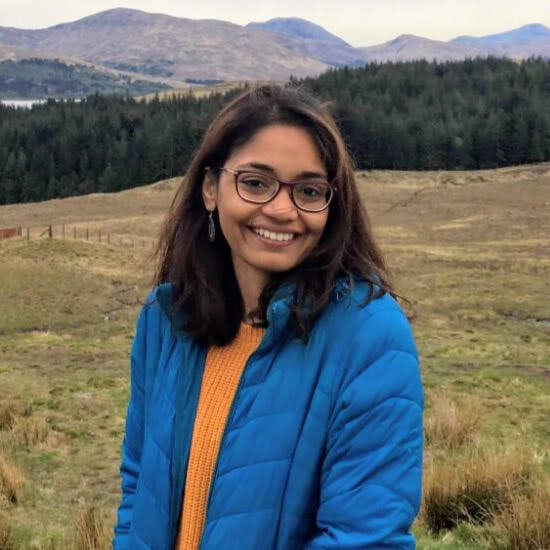Manaswi Saha, Lead Graduate Student for Project Sidewalk, Wins Google Fellowship
Manaswi Saha, a PhD student at the University of Washington’s Paul G. Allen School of Computer Science and Engineering, has been awarded a 2020 Google PhD Fellowship for her work in human computer interaction on urban accessibility.
Saha is the lead graduate student for Project Sidewalk, which uses crowdsourcing, computer vision, online map imagery and data visualization to collect sidewalk accessibility information and build interactive mapping tools. The project began with the development of methods for collecting accessibility data. This was followed by a team of students training computer vision and machine learning algorithms, based on crowdsourced information, to automatically detect additional accessibility issues, such as cracked or missing sidewalks or curb ramps, or the presence of obstacles. Project Sidewalk has been deployed in Seattle as well as Washington DC, Newberg, OR, Columbus, OH, and Mexico City, MX, in collaboration with local organizations and people with mobility disabilities.
Saha was one of 53 students around the world to receive the Google fellowship, announced earlier this month. In an Allen School News article announcing the award, Saha discussed her long-term research interest in socially impactful projects, and public service, especially for underrepresented communities.
Saha’s work on Project Sidewalk included leading the pilot deployment of the data collection tool in Washington DC as part of an 18-month study with 800 volunteer data collectors. She has also co-authored numerous papers about her work. In 2019, she was the lead author on the paper, Project Sidewalk: A Web-based Crowdsourcing Tool for Collecting Sidewalk Accessibility Data At Scale, which won a Best Paper Award at the annual ACM CHI Conference on Human Factors in Computing Systems.
Saha works with advisor Prof. Jon Froehlich, Director of the Makeability Lab where Project Sidewalk was launched in 2012, and the project’s Principal Investigator. Froehlich is also Associate Director of the new Center for Research and Education on Accessible Technology and Experiences (CREATE), launched in May 2020 with a $2.5 million investment by Microsoft, to expand work in areas such as accessible transportation, inclusive design, and augmenting abilities through wearable technologies.
